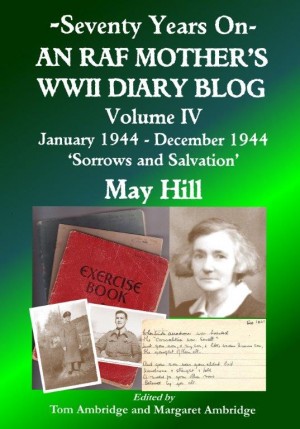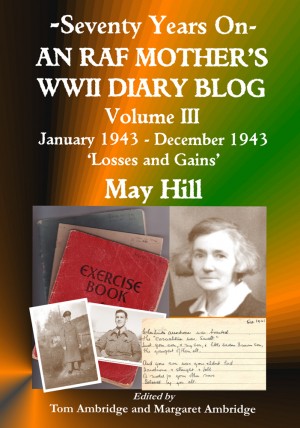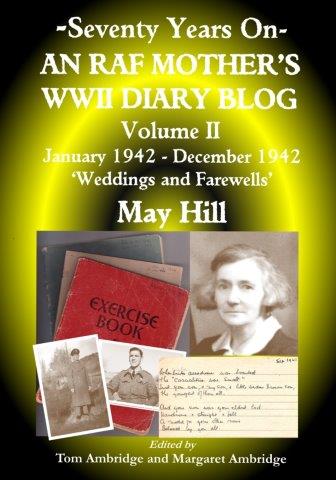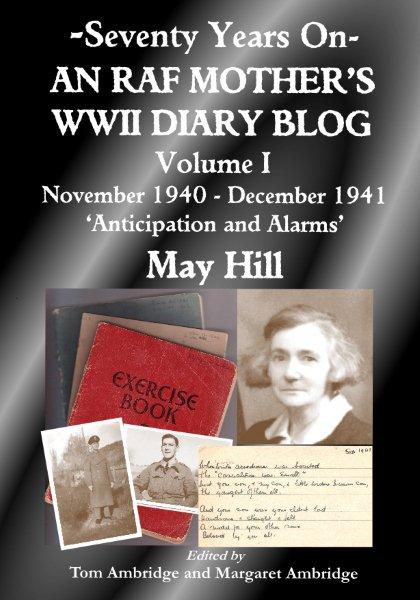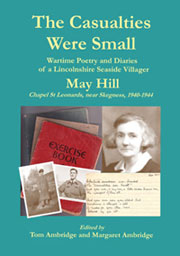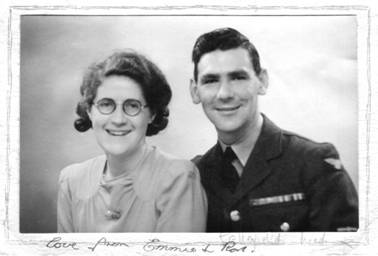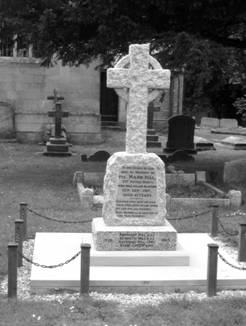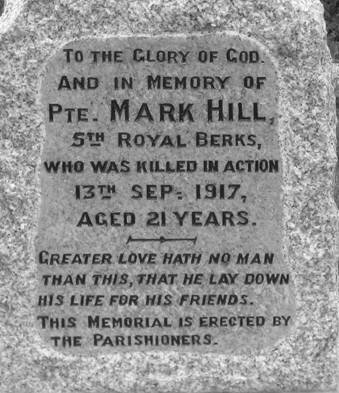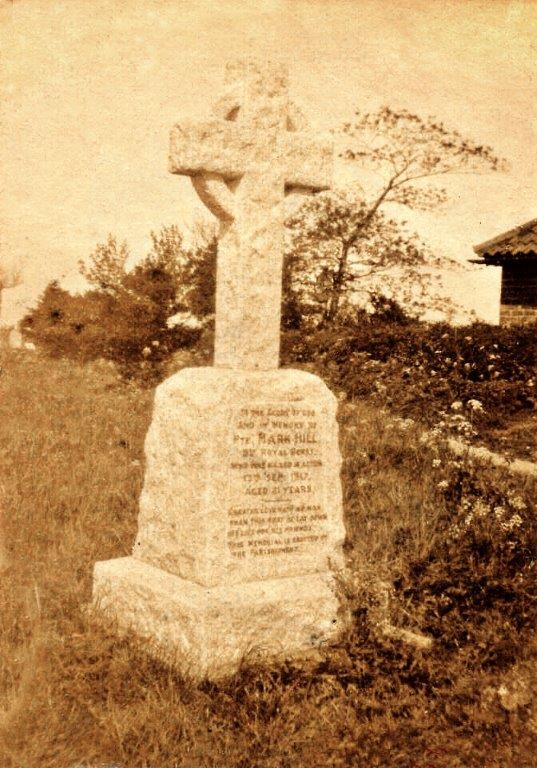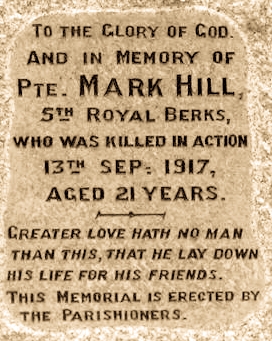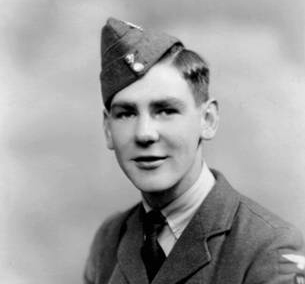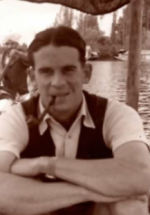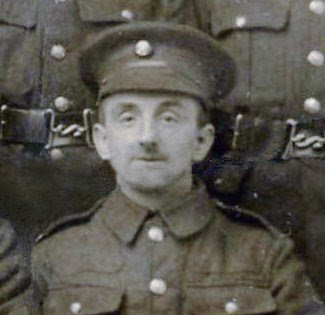Sadly, May’s war ended without the longed-for reunion with Ron, but not in the way she had feared most when she wrote, on 25th October 1943:
‘It is over a year since we saw Ron. I can still see the train pulling out with Ron waving from a carriage window, and how I felt as if he was taking a part of me with him, feeling as if I must strain my eyes for as long as I could see him, knowing it might be that it was the last sight of him we should ever have.’
With his mother defeated by her own ‘old enemy’, and his father gone not long before her, Ron’s war continued. He served with the RAF abroad for almost a year after May’s death, with no compassionate leave granted to attend either of his parents’ funerals. The pain of losing both parents, as well as their brother’s enforced absence, was hard for Jean and Rene to bear. Their grief was softened when Jean moved to live with Rene and Tom in their bungalow in the village. They kept in close touch with Emmie, Ron’s wife. In the summer of 1945 Emmie and Jean shared a holiday in the Lake District. Shortly afterwards Ron was demobbed, safely returning to England where he was joyfully reunited with his wife and sisters.
Emmie and Ron, together again at last,
after his return to England in 1945The rejoicing at the end of hostilities was mixed with grief; the war had taken its toll on the family and the village. Of the four young men who had been lost in action, as recorded in the Diaries, three were May’s nephews, Tony Hill (RAF), Kenneth Hill (RAF) and Raymond Hill (Army). Along with that of Hugh Green (Merchant Navy) their names were added to the plinth of the village war memorial, located in the grounds of St Leonard’s Church. The memorial had previously been erected in memory of Will’s brother, Mark Hill (Army), the only man of the village to be killed in action during the First World War (see 16 Sep 1944 when May laid flowers on Mark’s grave). Their sacrifices have not been forgotten and the village memorial was re-dedicated, following refurbishment, in a service held in 2005 on the anniversary of Mark Hill’s death in on 13th September 1917.
Chapel St Leonards War Memorial
with added WWII InscriptionOriginal Inscription WWI
WWII Inscription
As for May and Will’s immediate family, life began to move on. The first grandchild, Rene’s son, was born barely a year after May’s death. Jean lived with Rene and Tom for a few more years until they re-settled in Louth. Jean then moved to live in Skegness, where she continued in local government employment and met her future husband, Alan. Ron and Emmie made their home in Yeadon, near Leeds, where Ron pursued his career as a carpenter/joiner. Each couple had two children who have great pride in the Poetry and Diaries. Although they never met her, May Hill’s grandchildren will never forget the grandmother whom, through the wonderful legacy of her writing, they have come to know so well.
—————————————————-
This Postscript is adapted from that in the book “The Casualties Were Small” (available on Amazon) which contains May Hill’s poems, selected diary extracts and many nostalgic photographs, including those above.
—————————————————-
The contents of May Hill’s Diaries, and her Poems, with illustrations, as published in this Blog ‘Seventy Years on’, are available as annual Kindle e-reader volumes. These have the main title ‘An RAF Mother’s WWII Diary Blog’ and subtitles as follows (the links are for the UK Amazon Kindle Store – Search using ‘RAF Mother WWII’ in Kindle Store in other countries):
Volume One, November 1940 to December 1941, ‘Anticipation and Alarms’
Published as Kindle Edition in April 2012Volume Two, January 1942 to December 1942, ‘Weddings and Farewells’
Published as Kindle Edition in April 2013Volume Three, January 1943 to December 1943, ‘Losses and Gains’
Published as Kindle Edition in December 2013Volume Four, January 1944 to December 1944, ‘Sorrows and Salvation’
Published as Kindle Edition in November 2014
Have you read an introduction to May Hill & family (includes photographs) and explored ‘The Casualties Were Small’?

